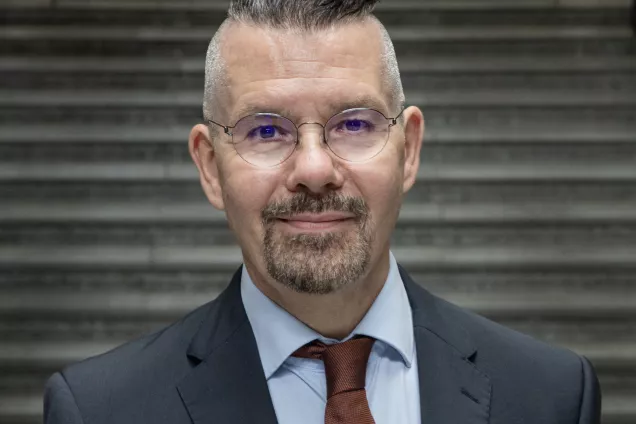Honoured emeriti vice-chancellors, honoured deans, students, colleagues and guests,
In the foreword to the annual academic ceremony programme, you will see a summary of what this speech was intended to be about.
Today, after a dark week that will change our lives for a long time to come, the final sentence sounds prophetic:
“Freedom requires hard work and that will continue in 2022.”
This speech goes to the heart of our reason for being as free academia.
There is a difficult, but life-affirming task: to promote democratic society.
First a confession, I am among those who would usually squirm when it comes to work on core values.
There, I was thinking as an academic. To short-circuit the academic process by deciding in advance what is right and wrong is fundamentally wrong. The research process, like journalism and art, must have a foundation that is neutral to consequences, but ethically defensible.
Academic freedom as a principle is what has made modern research-based universities a success story.
Today, there is reason to thoroughly illuminate the intersections between research, ethics and the law. Are there currently legal obstacles to researching things that we consider are important?
The law is no solution, but rather a beacon to help us navigate towards understanding, explaining and improving our world.
On the other hand, there are many occasions in our daily work when core values are necessary.
How we are to treat each other as colleagues, how teaching staff and students are to interact, and how we are to relate to the society that we serve.
There is also a core value expressed in the Instrument of Government that all of us working in a state institution have to relate to. Among other things, it states that we are to promote democratic society.
In a land like Sweden that is characterised by peace, core values have led to various storms in a teacup over the years. But, this time it is serious.
After a week in which we have seen a sovereign state with democratic ambitions invaded by a neighbour with completely different ambitions, there will also be profound consequences for us.
George Orwell’s classic slogan – War is peace, freedom is slavery and ignorance is strength – reflects both an anti-democratic and deeply anti-academic approach that we must combat.
Politics and free academia are like oil and water. Both are essential for human existence and development. In democratic countries, they are united in a compassionate striving to understand, explain and improve our world and the human condition. Always in interaction, but at the appropriate distance.
Since the start of the new millennium, the development of democracy has slowed down and even gone into reverse. Today, only 14 per cent of the world’s population live in stable democracies. Those of us who do, and work in free academia, have a special responsibility.
Free academia is the democratic society’s linchpin for the creation of new knowledge that improves our world and the human condition – and democratic society.
People around the world have gathered to show their solidarity with Ukraine.
Economic sanctions have been imposed. Collaborations with state institutions have ceased. There is a price and it is one we will have to pay.
At Lund University, we have worked hard to support our Ukrainian students and teaching staff members. This is good, but the rapid manifestations of solidarity weigh lightly against the hard work that starts now.
All the indications are that this will characterise the coming decades. This is a heavy task for those of us working within free academia.
A free Ukraine has been struck a hard blow, but it has not died. And it is down to us to ensure that it lives on – those of us who work at Lund University or other universities all over the world.
Academia creates a powerful international network that will carry Ukrainian students and teaching staff through the crisis. We will offer them a sanctuary and the opportunity to continue their efforts to give Ukraine back a better future.
The academic network is more durable than both political and diplomatic networks. Personal academic connections can and should live on.
This also applies to non-democratic countries without the same degree of freedom as us, but in a well-thought-out and responsible way. Young people of all nationalities who are passionate about a sustainable and democratic society will obtain both ideas and the strength to put them into action.
In this way, we strengthen our own democracy and lay the foundations for the development of democracy where it is needed.
With this approach, we form a basis for democracy and freedom to also prevail on the fertile plains north of the Black Sea, which many consider to be the cradle of European civilisation.
/Erik Renström



